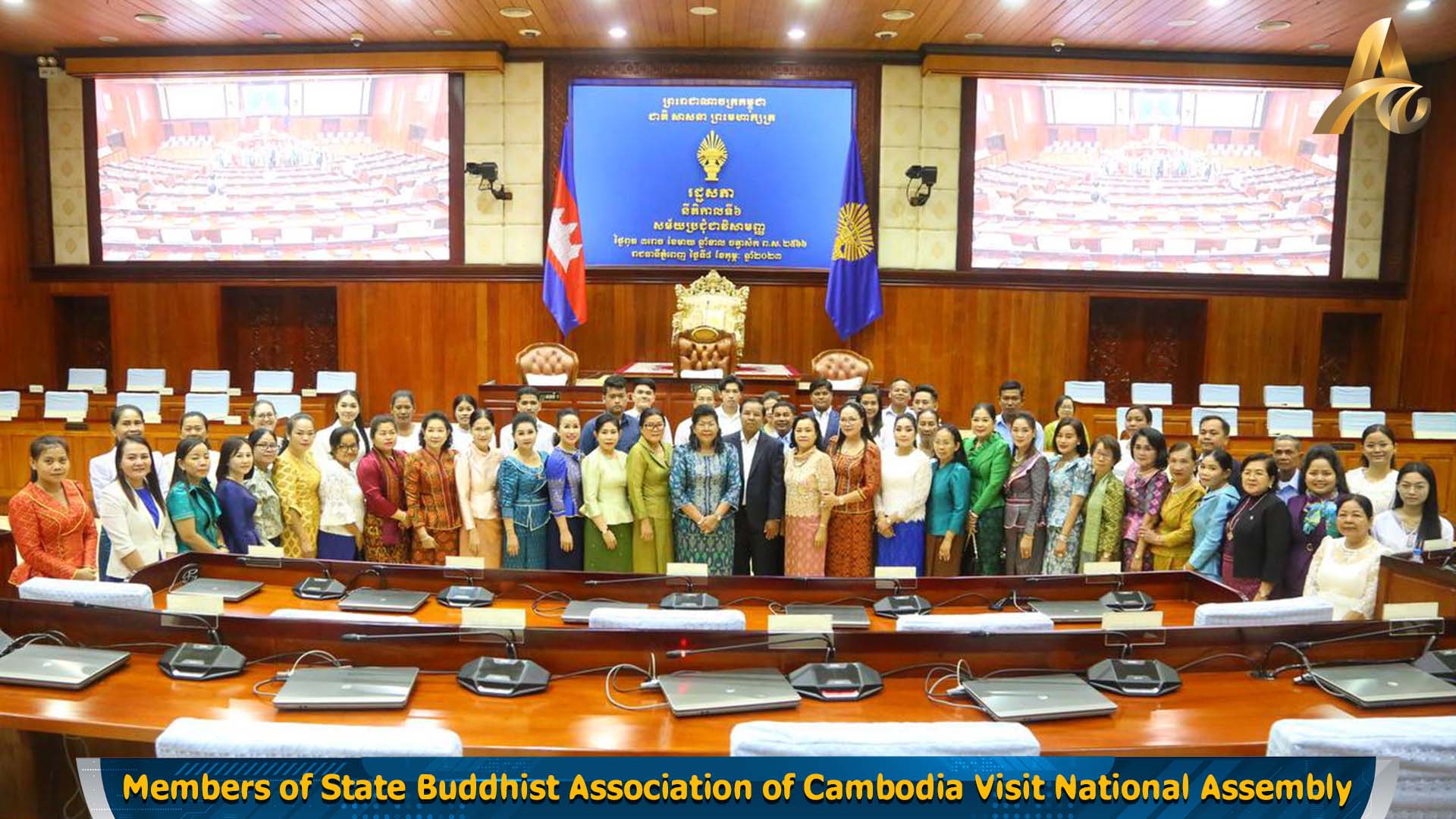PHNOM PENH: The Head of Delegation of the State Buddhist Association of Cambodia, Men Neary Vuthy, led about 70 members of the association to visit the National Assembly on Thursday morning, 9 February 2023, in order to learn about the structure, roles and responsibilities of this top national institution.
The Secretary-General of the National Assembly, Leng Peng Lang, and his colleagues warmly welcomed the visit and gave a presentation on the roles and responsibilities of the National Assembly, a statistical overview of women who work in the field of law, and also highlighted parliamentary work and other mechanisms in place promoting gender equality.
Secretary-General Leng Peng Lang explained that the General Secretariat is the main staffing unit of the National Assembly, which has the primary duty of providing all services for the daily functioning of the National Assembly, to fulfill its duties to the people and the nation.
He added that the National Assembly is the supreme body representing the nation's democracy because the National Assembly is formed by the will of the people through elections every five years. At the same time, he gave a detailed presentation on the three main tasks of the National Assembly, which are legislative work, monitoring the implementation of the law of the Royal Government, and representing the people.
The Head of Delegation of the State Buddhist Association of Cambodia, Men Neary Vuthy, expressed her pleasure at this visit, as it was a valuable opportunity for the members of the association to gain more knowledge about the role and duties of the National Assembly.
The National Assembly allows the visit of monks, government officials, students, the armed forces, civil society organizations and citizens in order to learn more about this national institution's work.





























